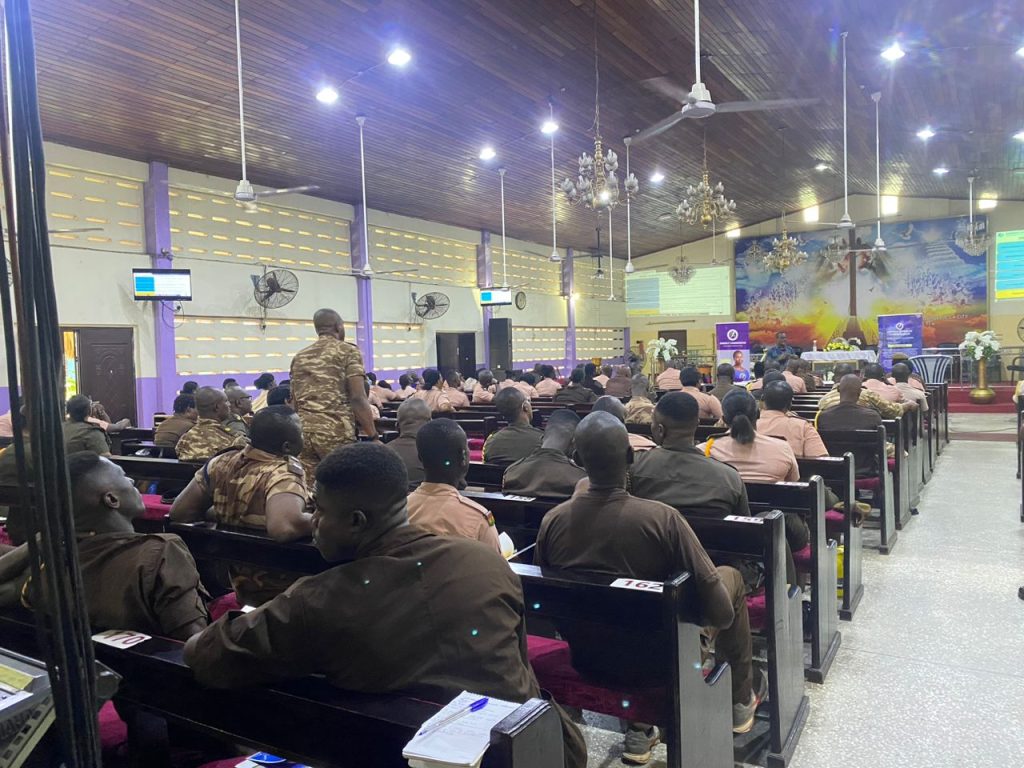By Edward Dankwah
Accra, June 2, GNA – The Ghana Energy Commission (EC) has trained over 150 Ghana Prisons Officers on the use of less energy to perform the same task and to produce the same results.
The EC also trained the Officers on the prevention of the wasteful use of energy, especially to ensure its continuing availability.
Mr Kennedy Amankwah, Deputy Director for Energy Efficiency Regulations at the Commission speaking during the training workshop held at the Ghana Prisons Service Headquarters said the workshop was geared towards reducing energy consumption.
He said energy efficiency was about change in technology, where individuals would have to replace gadgets that consumed more energy with those that consumed less yet offered good energy service.
Mr Amankwah said energy conservation was about energy use behavior, where individuals were supposed to know how to use energy-efficient gadgets.
He said the two major benefits derived from energy efficiency and conservation were cost reduction and environmental protection.
“As we are all aware, we use electricity, and the more we consume it, the more we pay, so if you are able to find a way of reducing your consumption, you also reduce your electricity bills,” he said.
The Deputy Director said the issue of climate change had become a global challenge, which affects Ghana as part of the global community, hence, one way to address this challenge was to reduce the CO2 emissions.

Mr Samuel Frimpong, Public Relations Officer at the Public Affairs Unit at the Commission, said every year the EC looked for identifiable Groups of energy consumers and trained them as to how to reduce their energy consumption and save money.
He said the Commission commenced the training in 2018, where the Ghana Armed Forces, the Ghana Police Service, and the Ghana National Fire Service had all been trained in that regard.
Mr Frimpong said the government spent huge sums of money to generate energy, transmit it and distribute it as well, hence if the demand were reduced, generation would also reduce for the government to save some money.
He emphasised the use of refrigerators as part of the energy-consuming appliances and said not all refrigerators in Ghana were supposed to be used because some were made for the frigid areas and the Scandinavian countries, which had their climate class as “Normal and Subnormal.”
“The fridges that are meant to be used in Ghana have their climate class as Tropical and Subtropical,” he added.
Mr Frimpong advised that refrigerators in use should not be exposed to sunlight as they tend to consume more than expected. He said by working together they could build a more sustainable future for Ghana, indicating that small acts of energy conservation could make a big difference in reducing costs and preserving the environment.
He commended the leadership of the Ghana Prisons Service for asking for the Officers to be trained and for their commitment to energy efficiency practices working together, we can build a more sustainable future for Ghana.
Deputy Superintendent, Samuel Kofi Opoku, an Officer at the Public Relations Unit of the Service, said the training workshop was timely as the Electricity Company of Ghana was on a drive to help save energy.
He said the training would help them as Officers to know how to use and manage their appliances both at home and in their various offices to save energy and money.
DSP Opoku entreated the Commission to train other Associations, Schools, and other stakeholders to ensure everyone was contributing to saving energy.
“Today, tariffs on electricity bills have been increased so when we have this education and training, we will be well informed and given the requisite knowledge on how to use electric appliances,” he said.
GNA